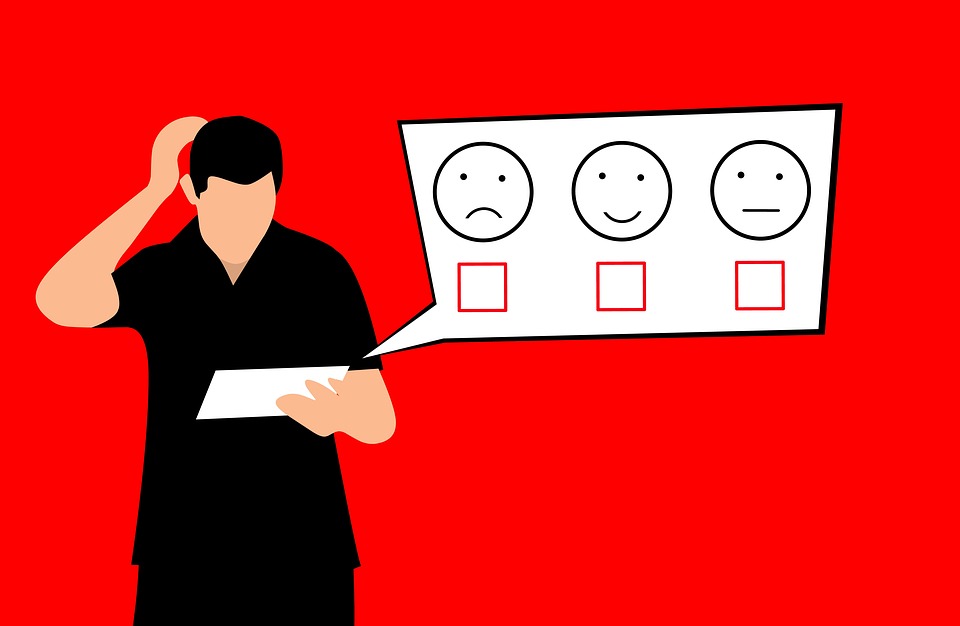In reality, it’s not always possible to both practise good medicine and meet patient expectations
Not another customer feedback survey!
Is it just me, or does it seem any time you buy anything from a flight to insurance, the screen that announces your payment is complete is followed by a “short” and “much-appreciated” survey to help them “improve future services”?
When did “you’re welcome”, or even “have a nice day”, become replaced with “could we just take a few more moments of your time”?
I know. I know. I’m turning into a grumpy old lady.
Checking in with your customers, seeing if you’re meeting expectations and looking for ways to improve are certainly all noble and worthwhile pursuits. How are you ever going to improve if you don’t know where the mistakes are being made?
You can see how important this principle is in the commercial world. In the world where the purchaser holds all the power, you have to live by the mantra the “customer is always right”.
Retailers need to know if their dining chairs fall apart at the first sitting or their immediate delivery takes eight weeks.
But just how appropriate is this type of survey in our world? How valuable are patient feedback surveys, now part of the practice accreditation process, for general practices?
Once again, it is obvious the principle is sound. Everybody from the practice owners to the patients themselves wants the general practice experience to be the best it could possibly be. And there are always areas in a business that need to be improved upon, which patient surveys can, and should, highlight.
However, I fear, that if meeting patient expectations 100% of the time is going to be our ultimate goal we will be destined not to practise good medicine.
For a start, see 30 patients in a day and you will have 30 different sets of expectations. Simple differences, such as the expectation that you will give the patient enough time to discuss their problems, is destined to conflict with the expectation you will always run on time.
Sometimes it’s straightforward. The female patient who usually sees my male colleague but prefers to come to me for women’s issues is more likely to rate her satisfaction more favourably just for my extra X chromosome. But often it’s more complex.
The patient who presents with the expectation you will give antidepressants for depression as part of the initial treatment can be followed by the patient who expects you will only prescribe antidepressants for depression as a last resort. You can, of course, choose a different course of action according to the patient’s expectations, but should that be the determining factor in deciding treatment?
We’ve all had patients whose expectations are unrealistic, or just plain wrong. The back-dated medical certificate request, the fit-to-drive form to be okayed despite worsening dementia, the umpteen blood tests the naturopath wants and says you can order on Medicare, the antibiotics for the viral URTI … let’s face it, these patients are unlikely to rate their experience highly unless you prostitute yourself.
And sometimes the expectations are not right or wrong, they’re just different.
I remember I saw a patient who presented with a recent diagnosis of dementia. He had seen another doctor, but chose not to go back despite them being particularly good as they had brought up the topic of advanced-care directives and this patient wasn’t ready to hear that yet. A patient survey might have shown this man’s expectations had not been met by the previous doctor and yet, by any other measure, exemplary medicine had been practised.
Of course, patient surveys evaluating the actual consultation are not without value. It can help to know if patients feel they have been listened to, had adequate explanation of their condition and been well-equipped to manage their health issues going forward.
But the value of this component of accreditation, in the general practice world at least, needs to be kept in perspective.
The reality we face in terms of ensuring “customer satisfaction” is that, currently at least, patients have the freedom to choose with their feet.
If a patient feels their GP is not meeting their expectations they, in most areas in Australia, have the freedom to find another. In general, a GP who consistently fails their patients in terms of satisfaction and expectations will lose their clientele.
The more common scenario is that patients tend to select the GP that suits their needs and expectations. In your average, established, garden-variety general practice the majority of consultations are unlikely to involve strangers. Patients tend to choose a doctor they can connect with on some sort of personal level rather than clinical expertise.
The patient expectations therefore, at least in part, are going to built on previous experience, in which case what would a survey about the consultation actually be measuring? Whether the GP is having a good or bad day?
Good medicine and patient satisfaction should go hand in hand, but that doesn’t always happen. It can be tricky. We all want to do a good job and will always be striving to do a better job.
But we’re not selling fridges or insurance policies.
The vagaries of human nature, the vast range of personalities and backgrounds that exist on both sides of the doctors’ desks, and the broad variety of conditions encountered in general practice have to limit the value of customer satisfaction surveys.
And now, if I could just ask you to please complete our feedback form …


